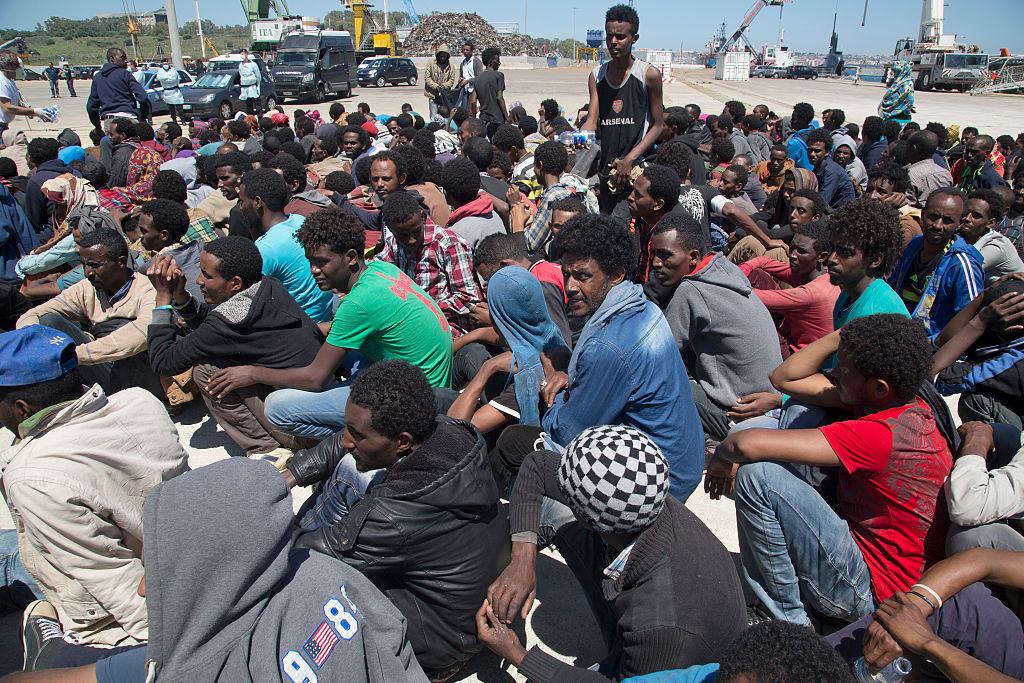European car companies are locked in an increasingly bitter struggle to maintain profits and market share amid a secular downturn in sales of internal combustion vehicles (ICE). Caught between an EU mandate to end ICE sales by 2035 and a wave of cheap Chinese EVs invading their home market, carmakers must reduce overhead if they are to survive. Across Europe, the capacity utilisation of car factories in 2023 was less than 60 per cent, and 2024 promises to be worse. A fierce game of Survivor is underway to reduce production costs and thereby stick competitors with excess capacity.
Volkswagen is using less than 70 per cent of its production capacity and intends to shutter plants and layoff German workers for the first time. Chairman Oliver Blume cites a half a million “missing sales” as the source of his company’s woes, as if eager German buyers have somehow gone walkabout in the Hartz forest and must only be tracked down to restore VW’s fortunes.
The truth is much harsher: sales in China and the US are in decline, European sales are flat, and VW is stuck with an industrial plant geared toward making cars the EU intends to ban. Renault is clocking in at 58 per cent of capacity despite strenuous efforts by CEO Luca de Meo, who has already cut nearly a quarter of the company’s manufacturing base since 2020. Stellantis is using just 49 per cent of its European capacity, and has just lost Carlos Tavares, its star CEO, amid a contentious struggle to reduce spending. Ford has apparently already surrendered, slumping to a 4 per cent market share in Europe, and cancelling the Focus and Fiesta, its compact car stalwarts.
Unfortunately for businessmen devoted to efficiency and marginal cost analysis, the European car industry is deeply embedded in fraught national politics. Automobile production and its associated employment formed the basis of the post-war social welfare state across Europe and still provides a substantial share of total jobs and tax revenues. European governments are traditionally quick to prop up and protect their national carmakers, often using outright equity stakes. By seeking to restore profits at the expense of employment, the now former CEO of Stellantis violated this social compact and found himself the first to be voted off the island.
Tavares believed he had a mandate from Stellantis chair John Elkann to rationalise spending and production across Stellantis’s motley collection of 14 marques, including Fiat, Maserati, Peugeot, Jeep and Ram. Unfortunately for Tavares, the charming and well-tailored Elkann could not endure the howls of outrage from his unions, suppliers and dealers. Given a choice between increasing shareholder value and placating the notoriously explosive Georgia Meloni, Elkann chose to appease the government in Rome. Not that Tavares was without blame: in a feat unprecedented in automotive history, he failed to sell pickup trucks to the Americans. After a bungled marketing campaign, sales of Ram trucks in North America declined nearly 20 per cent, killing off a once reliable cash cow for Stellantis.
Stellantis is itself the product of a merger between family dynasties: the Agnelli family holds roughly 14 per cent of the company, and the Peugeots own 7 per cent. While Elkann, grandson of Fiat founder Gianni Agnelli, watches over his family stake as Stellantis chairman, the Peugeot family can count on ranking board member Comte Henri de Castries to protect its interests.
Needless to say, this tangled web of familial and political obligations does not make for corporate agility in hard times. PM Meloni and her sidekick Matteo Salvini fight off what they see as French attempts to gut Fiat, while de Castries and his fellow Enarques (graduates of the elite École Nationale d’Administration) have no patience for low-born Italian populists when a crown jewel of French industry is imperilled. In the battle to allocate capacity within the firm, Elkann may discover that industrial aristocrats are less influential in the corridors of the Elysée than actual aristocrats.
Yet Stellantis must cut capacity somewhere if it is to fund the transition to EVs. A belated electrification of its mass market brands will struggle against a Chinese EV behemoth that already boasts immense scale and a 30 per cent production cost advantage over European EVs. While the EU has helped with a hefty tariff on Chinese EV imports, several Chinese firms plan to make EVs inside the EU which will not be subject to the tariff. Tesla will likely dominate the high end EV market, BYD and Geely the middle and low end, leaving Stellantis with few competitive options. Begging the EU to relax its EV mandate and give life to legacy internal combustion vehicles may be the best play Elkann and de Castries have, hence the need to appease their political masters in Rome and Paris.
Students of international product cycle theory will not be surprised by this turn of events. European firms taught the Middle Kingdom how to make cars and now find themselves on the defensive as China, having absorbed European technology and know-how, invades Europe’s home markets. The EV revolution has tightened the turn of the product cycle and allowed China to steal a technological march on Europe in a politically critical sector.
A fiscally challenged Europe cannot allow the most important part of its industrial base to head offshore into the hands of a strategic competitor. Henri de Castries may believe his role at Stellantis is simply to deflect capacity cuts away from Peugeot and toward Fiat. He may however wish to contemplate the fate of his cousin Christian de Castries, who found himself overmatched by determined Asian adversaries at a place called Dien Bien Phu.





The Greens are fading now, but I was in Germany with them at the start